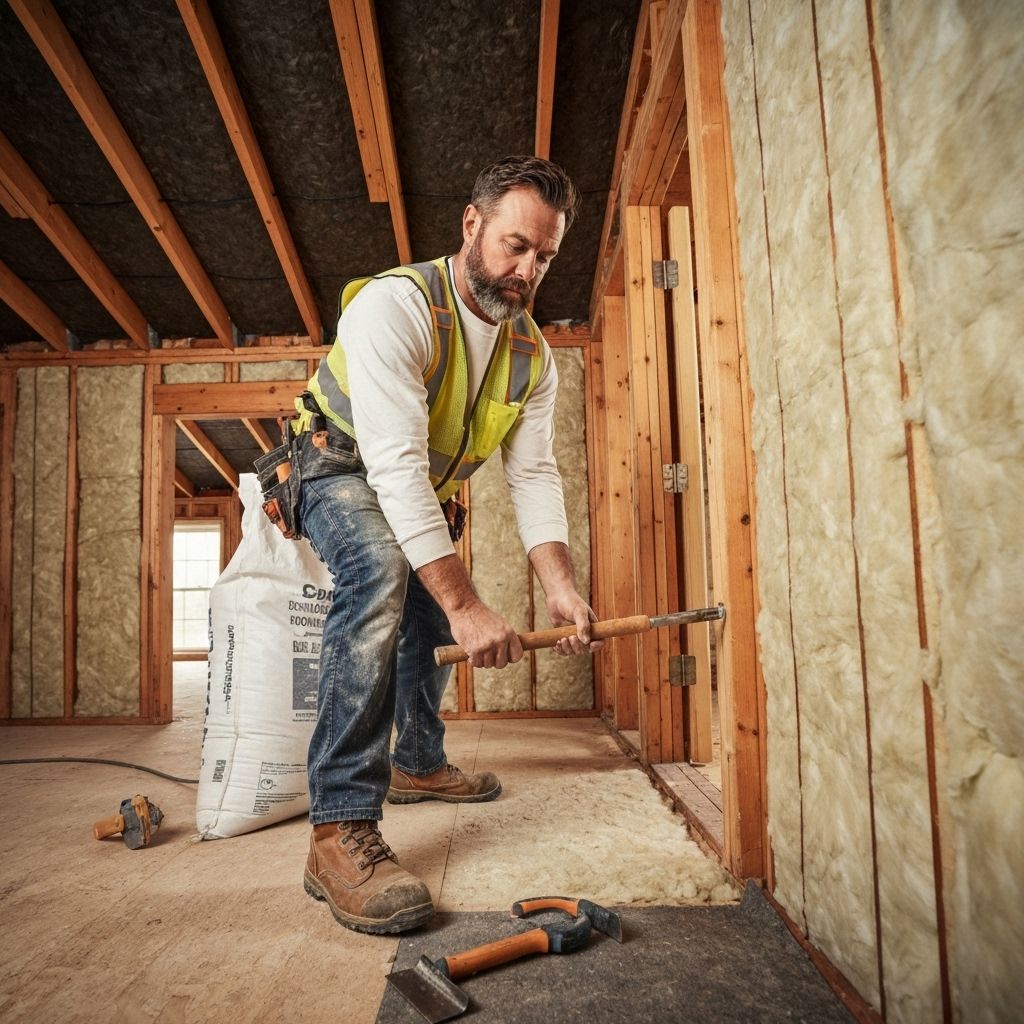Winter is Coming: Why Insulation Is Crucial Like Never Before

As the fresh air of autumn is replaced by a cold chill of winter, it's time to consider one of the most crucial aspects of owning a home: insulation. Numerous homeowners neglect the importance of good insulation until they experience that initial draft or see their heating bills skyrocket. However, taking the appropriate steps to insulate your home can have all the difference, improving comfort and greatly reducing energy costs.
In this definitive guide to residential insulation, we will examine everything from the different types of insulation materials to the best practices for air sealing your home. Whether you're a seasoned DIY enthusiast or a novice looking to improve your living environment, grasping insulation is vital not just for keeping warm in winter but for consistent comfort and energy efficiency. Let us explore why insulation matters now more than ever and how you can ensure your home is prepared for the changing seasons ahead.
Understanding Residential Insulation
Residential insulation is a vital aspect of energy efficiency in residential structures. It assists to manage indoor temperatures by decreasing heat flow between the interior of your house and the outside environment. In chilly months, insulation keeps warm air indoors, while during warmer months, it works to keeping cooler indoor temperatures. This process improves ease but also plays a significant part in diminishing heating and cooling costs, making it an essential spending for homeowners.

There are various types of insulation substances available, each with its unique benefits and limitations. Common options consist of fiberglass, foam board, cellulose, and spray foam. Grasping https://rentry.co/r55s446g between these substances can enable you formulate educated decisions about which kind most meets your needs. Factors such as R-values, which quantify thermal resistance, and the exact areas of your residence needing insulation all contribute to this decision-making.
Additionally, appropriate installation and care of insulation are vital for best effectiveness. Poorly installed insulation companies can result to air gaps, causing increased energy consumption and discomforting living conditions. Regularly checking your house's insulation, notably in critical areas like attics, basements, and crawl spaces, makes sure that your home remains energy-efficient and pleasant throughout the seasons.
DIY Heat Tips
As you tackling insulation tasks, start by assessing your home’s current insulation levels. Check areas like roof spaces, walls, and basements to see if they meet recommended R-values. A simple way to do this is by using a measuring tape to determine the thickness of existing insulation. If it seems compressed or insufficient, it may be time for an upgrade. Understanding how to check your home's insulation will give you a complete picture of what work needs to be done.
As you beginning any insulation job, ensure you properly air seal your home. This step is important to improve the performance of insulation. Use caulk or weatherstripping to seal holes around window frames, door frames, and where utilities enter your home. This not only improves livability and energy efficiency but also preserves your insulation from moisture damage, which can compromise its performance.
When it comes to deciding on insulation type, consider going the DIY approach with materials like fiberglass batt or blown-in cellulose. Each has its own installation process. For batt insulation, simply trim the batts to fit snugly in wall cavities. For blown-in insulation, borrowing a blower can speed up the process quicker and allow you to fill difficult-to-reach spaces better. Remember to wear safety equipment when handling insulation materials to ensure your wellbeing during your project.
Thermal Protection Impact on Home Value
Investing in high-grade insulation can significantly enhance your home's market value. Potential buyers are increasingly looking for energy-efficient homes that offer comfort and lower utility costs. Through improving your insulation, you not only create a more enjoyable living environment and also position your home as a sought-after option in a competitive real estate market. Homes with high-quality insulation often attract buyers willing to pay a premium, understanding the long-term savings and comfort advantages.
Additionally, well-insulated homes have a lower environmental impact, appealing to energy-conscious buyers. Numerous modern homebuyers prioritize eco-friendliness and are conscious of how insulation affects energy efficiency. Through upgrading your insulation, you further improve your home's overall energy performance, presenting it as an environmentally-friendly investment that aligns with contemporary values. This green aspect adds an extra appeal that can increasingly elevate your home's value.
Finally, insulation can be viewed as a means of preventative maintenance. In the long run, poor insulation can lead to dampness problems, mold, and structural damage, all of which lower a home's value. By ensuring your insulation is sufficient and in optimal condition, you avert these potential problems and enhance your property's longevity. An insulated home offers fewer worries to buyers, making it more attractive and commanding a higher resale price.
